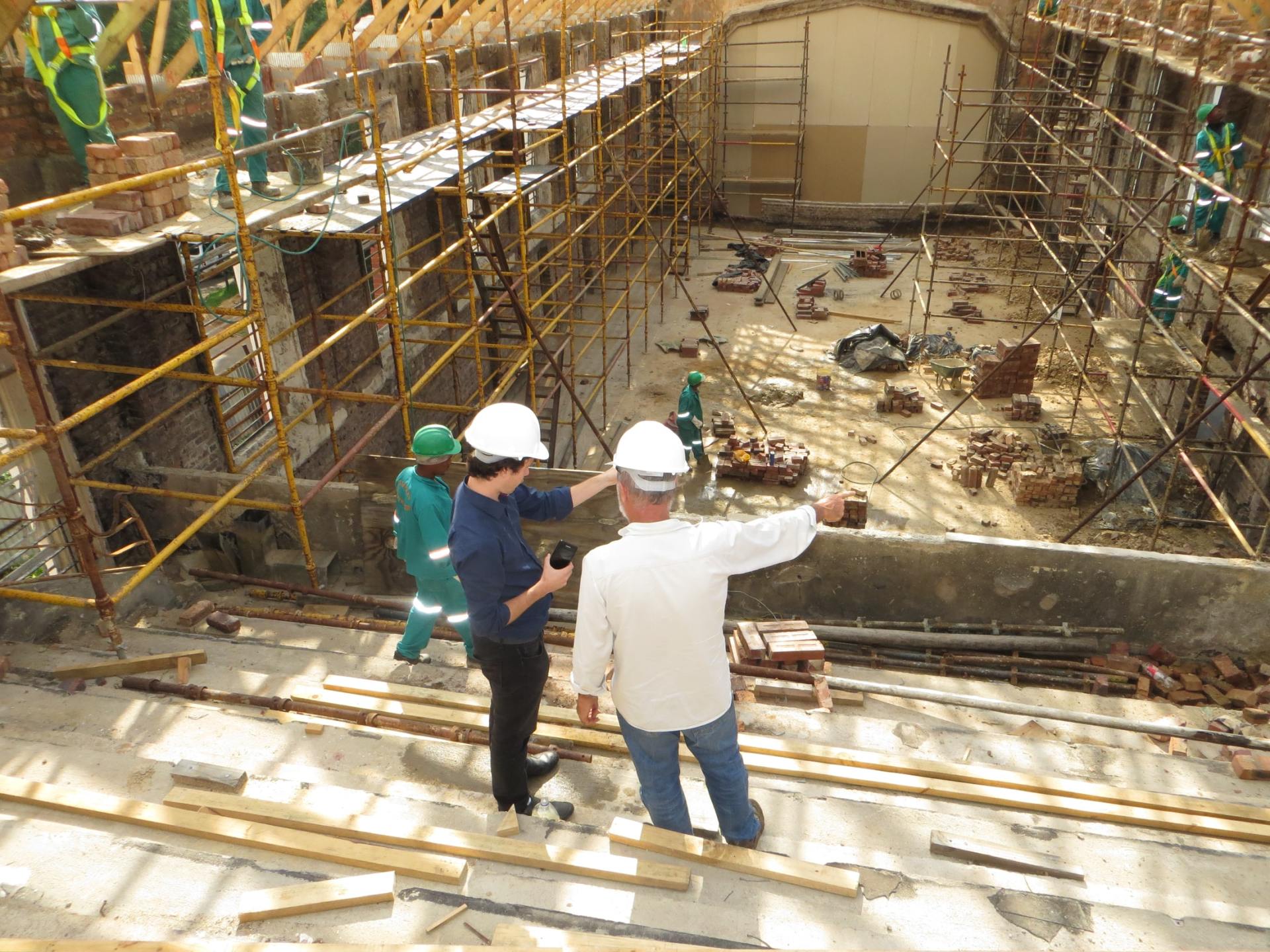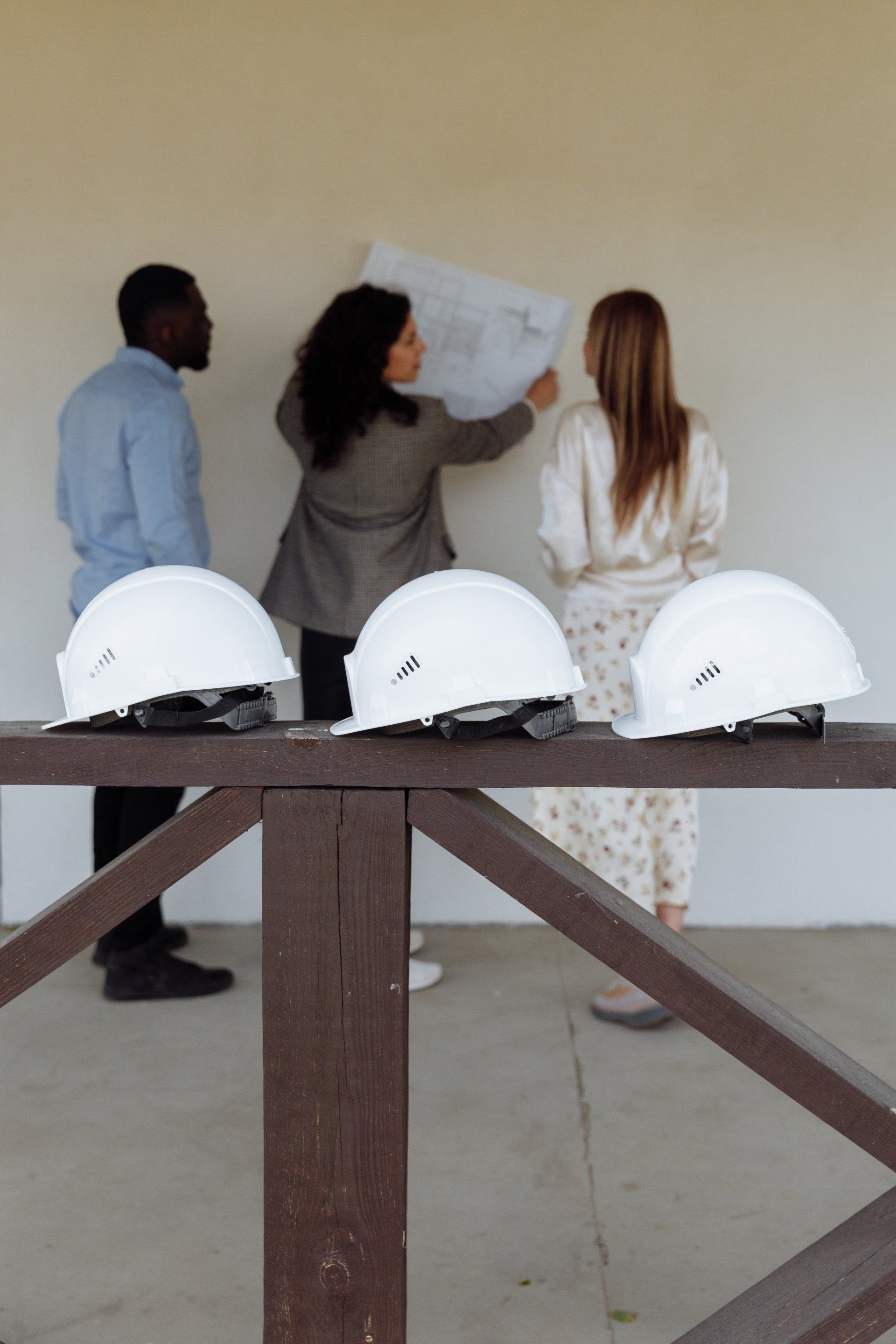Construction Workers' Comp Insurance In Idaho: Safeguarding Your Team And Projects
In the construction industry, worker safety is of paramount importance. Accidents can happen on job sites, resulting in injuries that not only affect the well-being of employees but also have significant financial implications for employers. This is where workers' compensation insurance plays a crucial role.
In the state of Idaho, construction companies are required by law to provide workers' compensation insurance to their employees. Understanding the importance and legal requirements of this type of insurance is essential for both employers and employees in order to safeguard their teams and projects. To help you understand the basics of workers compensation insurance, get in touch with
Idaho Select Workers Comp Insurance!
Contact Us
We will get back to you as soon as possible.
Please try again later.
Workers' compensation insurance provides vital protection for construction workers who may be exposed to various hazards during their work. It ensures that injured employees receive necessary medical treatment, rehabilitation, and lost wage benefits without having to bear the financial burden themselves. Additionally, it offers employers protection from potential lawsuits arising from workplace injuries or illnesses, as it typically includes an employer's liability component. By providing this coverage, construction companies demonstrate their commitment to the safety and well-being of their workforce while fulfilling legal obligations.
Complying with Idaho's legal requirements regarding workers' compensation insurance is not only crucial for construction companies but also beneficial for all parties involved. Employees can feel secure knowing that they will be taken care of if they are injured while on the job, allowing them to focus on recovery without worrying about medical expenses or loss of income. Employers benefit from reduced liability risks and potential litigation costs associated with workplace accidents or occupational diseases. Moreover, maintaining a safe working environment through proper risk management practices can help minimize accidents and enhance overall productivity on construction projects across Idaho.
Key Takeaways
- Worker safety is crucial in the construction industry.
- Workers' compensation insurance provides protection for construction workers and employers.
- Complying with Idaho's legal requirements for workers' compensation insurance is beneficial for all parties involved.
- Workers' comp insurance mitigates financial risks for employers and protects businesses from costly legal battles.
Legal Requirements for Construction Companies in Idaho
Idaho state legislation mandates specific legal requirements for companies operating in the construction industry. These regulations are put in place to ensure the safety and well-being of workers, as well as to protect the interests of both employers and employees. One key requirement is that construction companies must provide workers' compensation coverage for their employees. Workers' compensation coverage is essential in the construction industry due to the inherent risks associated with this line of work. It provides financial protection for employees who may suffer from work-related injuries or illnesses. By having this coverage, construction companies can fulfill their responsibility towards their workforce and provide them with medical benefits, lost wages, and rehabilitation services if they are injured on the job.
Additionally, workers' compensation insurance also safeguards employers by providing a legal framework that helps prevent costly lawsuits resulting from workplace accidents. It ensures that injured employees receive compensation without having to go through lengthy court processes. Idaho's legal requirements for construction companies emphasize the importance of workers' compensation coverage. This regulation aims to protect both employers and employees by providing financial support in the event of work-related injuries or illnesses. Compliance with these regulations ensures a safer working environment and reduces potential liabilities for all parties involved in the construction industry.
Benefits of Workers' Comp Insurance for Employees
One crucial shield that employees can benefit from is having workers' compensation coverage, which acts as a safety net in the event of work-related injuries or illnesses. This type of insurance provides employees with protection and financial security, ensuring that they are compensated for medical expenses, lost wages, and rehabilitation costs resulting from workplace accidents. By having workers' compensation insurance in place, construction companies in Idaho can fulfill their legal obligations while also prioritizing their employees' well-being.
Employee protection:
- Workers' compensation coverage safeguards employees by providing financial support in the event of work-related injuries or illnesses.
- It ensures that injured workers receive prompt medical treatment and necessary rehabilitation services.
Financial security:
- Workers' comp insurance guarantees that employees are compensated for lost wages during their recovery period.
- It covers medical expenses such as doctor visits, hospital stays, surgeries, prescription medications, and physical therapy.
Having workers' compensation coverage not only protects individual employees but also contributes to a safer work environment. When workers feel secure knowing they will be taken care of if an accident occurs on the job site, they are more likely to report hazardous conditions or near-miss incidents promptly. Additionally, this type of insurance helps prevent lawsuits against employers arising from workplace injuries since it provides an alternative avenue for employees to seek compensation without resorting to legal action.
Overall, workers' comp insurance promotes employee welfare and fosters a positive relationship between construction companies and their workforce.
Benefits of Workers' Comp Insurance for Employers
As an employer, you have a moral and legal responsibility to make sure that your workers are safe and healthy. Workers' Compensation (Workers' Comp) insurance is a good way to protect both workers and employers. This specialized security gives employers a lot of benefits, protecting them from possible financial liabilities and making the workplace a better place to work. In this piece, we'll talk about the big benefits that employers get from Workers' Comp insurance.
- Financial Protection: Financial protection is one of the main perks of having Workers' Comp insurance. If a worker gets hurt or sick at work, this insurance helps companies pay for the costs. It usually pays for the employee's hospital bills, rehabilitation costs, lost wages, and disability benefits. Workers' Comp insurance makes sure that employers can stay financially stable and avoid lawsuits or costs that could put them out of business. It does this by easing the financial load of workplace accidents.
- Legal Compliance: Workers' compensation insurance is required by law in most places, including Idaho. By getting this protection, employers are doing what the law says they have to do and following state rules. Failing to provide proper coverage can lead to severe penalties, fines, or legal consequences. Workers' Comp insurance not only saves employers from possible legal problems, but it also shows that they care about their workers' health and follow labor laws.
- Improved Employee Relations: Workers' comp insurance is a key part of making sure that employees get along with each other well. When workers know they will be protected in case of an accident at work, they are more likely to trust and stay loyal to their boss. Having insurance coverage makes people feel safe and secure, which boosts their mood and makes them more productive. By making sure their workers are safe and healthy, employers can create a good environment at work, which leads to more job satisfaction and more people staying in their jobs.
- Streamlined Claims Process: Employers find the claims process easier when they have workers' comp insurance. If someone gets hurt or sick, the insurance company takes care of the claim. This takes the administrative load off the boss. This lets employers focus on other important parts of their business while making sure that workers get the care and perks they need quickly. The shortened claims process cuts down on paperwork, shortens wait times, and makes it easier for problems at work to be solved quickly.
- Risk Management and Prevention: Employers who have workers' compensation insurance are more likely to put risk management first and put in place strong safety measures. Insurance companies often offer tools, training programs, and advice to help employers find and deal with possible hazards in the workplace. Employers can avoid accidents, cut down on injuries, and make the workplace safer by putting risk management practices into action. This proactive method not only keeps employees safe, but also lowers insurance costs over time.
Employers in the construction industry especially benefit from this coverage due to the higher risk of accidents and injuries in their line of work. By prioritizing worker safety through adequate insurance coverage, employers can ensure smoother operations while safeguarding their business interests against potential legal disputes or lawsuits arising from workplace incidents.
Ensuring Safety and Well-being in the Construction Industry
Creating a culture of care and caution is crucial in the construction industry to ensure the safety and well-being of workers on their work sites. With its inherently hazardous nature, the construction industry poses significant risks to workers, making it essential for employers to prioritize safety measures. Workplace accidents are prevalent in this field due to factors such as heavy machinery operation, working at heights, exposure to harmful substances, and physical labor-intensive tasks. These accidents can result in severe injuries or even fatalities if proper precautions are not taken.
To mitigate these risks, employers must implement comprehensive occupational health and safety programs that address potential hazards systematically. This includes conducting regular risk assessments, providing appropriate training on safe work practices, and enforcing compliance with safety regulations. By identifying potential workplace hazards beforehand and implementing necessary control measures, employers can significantly reduce the likelihood of accidents occurring on construction sites.
Occupational health also plays a vital role in safeguarding the well-being of construction workers. Exposure to various environmental factors such as dust, noise, vibration, and chemicals can have long-term detrimental effects on employees' health if not managed effectively. Employers should implement measures like providing personal protective equipment (PPE), monitoring air quality levels regularly, offering medical surveillance programs, and ensuring access to clean drinking water facilities.
Ensuring safety and well-being in the construction industry requires concerted efforts from employers to create a culture focused on care and caution. By prioritizing occupational health and implementing robust safety protocols aimed at preventing workplace accidents and managing potential hazards effectively, employers can protect their workforce from harm while fostering a productive environment for their projects.
Safeguarding Your Team with Idaho Workers Compensation Insurance
In conclusion, workers' compensation insurance plays a crucial role in safeguarding the well-being of construction workers and ensuring the success of projects in Idaho. By understanding the importance and legal requirements of this insurance, both employees and employers can greatly benefit. For employees, workers' compensation insurance provides essential protections in the event of work-related injuries or illnesses. It offers financial support for medical expenses, rehabilitation costs, and lost wages, allowing them to focus on recovery without worrying about the financial burden. Additionally, it fosters a sense of security and assurance among employees knowing that their employers value and protect their physical well-being.
On the other hand, employers also reap significant benefits from providing workers' compensation insurance coverage. Not only does it fulfill legal obligations and prevent potential lawsuits, but it also fosters a positive work environment where safety is prioritized. This reduces accidents and injuries on construction sites, leading to improved productivity and lower turnover rates. Additionally, by investing in their workforce's health and safety through comprehensive insurance coverage, employers demonstrate their commitment to employee welfare while enhancing their reputation within the industry.
In essence, workers' compensation insurance acts as a shield that protects both employees and employers in Idaho's construction industry. It creates an atmosphere where risks are effectively managed through preventive measures while offering necessary support when unfortunate incidents occur. Just like a sturdy helmet shields against potential dangers at a construction site or how reinforced scaffolding supports projects reaching new heights, workers' compensation insurance becomes an integral part of constructing a resilient workforce capable of overcoming challenges with confidence.
By adhering to legal requirements and recognizing the advantages associated with this insurance coverage, construction companies can ensure safety remains paramount throughout their operations. Together with diligent implementation of safety protocols and continuous training programs for all personnel involved in construction projects across Idaho's landscape, we can build not just structures but also strong foundations for success that protect those who contribute tirelessly towards shaping our built environment.
Affordable Insurance With Personal Service - Local Agents & Brokers
CONTACT US
Phone: 208-515-2625
Email Us:
tony@idselectins.com
chris@idselectins.com
Meridian Office
3023 E Copper Point Dr. #203
Meridian, ID 83642
Boise Office: 9727 W Cory Ln Ste. 101
Boise, ID 83704
Insurance Services
Have Questions or Request A Quote
Contact Us
We will get back to you as soon as possible.
Please try again later.






